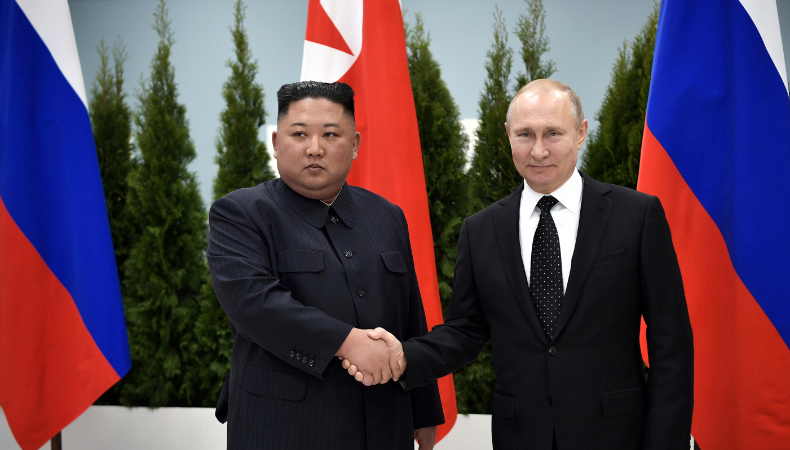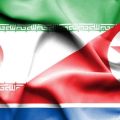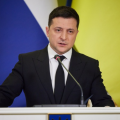A War & Weapon Agenda: Vladimir Putin Heads to North Korea for the First Time Ever

Russian President Vladimir Putin is visiting North Korea for the first time in 24 years in an unparalleled action highlighting the changing geopolitical scene. For Russia negotiating its continuous battle in Ukraine and looking for new partners and weapons, this trip comes at a pivotal point. The visit emphasizes the developing link between two countries often at conflict with Western goals.
Strengthening Old Friendships
Historically important, Putin’s visit to Pyongyang marks his first time in the North Korean capital since 2000. This action emphasizes a rebirth of relations since Putin thanks North Korea for always supporting Russia’s activities in Ukraine. The trip marks a recent conference between Putin and North Korean leader Kim Jong Un in Russia’s far east, so deepening their relationship. The friendship among the leaders bet on a deeper mutual awareness and shared strategic goals.
Against the West, a Common Stance
Aiming to operate free from Western influence, Putin’s message, broadcast on North Korean official media, promises to strengthen trade and security links with Pyongyang. Against what he called “US pressure, blackmail, and military threats,” he also expressed sympathy with North Korea. This language emphasizes a shared goal to create a multipolar world order and a unified opposition to Western policies. Their coordinated foreign policies point to a cooperation based more on strategy than only symbolism.
American worries
The developing alliance between Russia and North Korea worries the United States. The White House is cautious of the wider consequences of a growing relationship even while it minimizes the immediate relevance of Putin’s visit. Spokesperson for national security council John Kirby underlined the geopolitical consequences of this alliance. Should North Korea provide Russia military weapons or other support, the possibility of North Korea arming Russia might aggravate the situation in Ukraine and raise world security concerns.
A “Friendly States Visit”
Putin’s trip has been characterized by the Kremlin as a “friendly state visit.” According to reports, the leaders could release joint remarks to the public and sign a partnership agreement possibly involving security protocols. The itinerary calls for a concert, a procession in Kim Il Sung Square, and a trip to Pyongyang’s Orthodox Church of the Life- Giving Trinity. High senior officials from Putin’s delegation will emphasize the significance of the visit. By presenting their solidarity on the international scene, these ceremonial gestures help to publicly strengthen the alliance.
Contextual History and Future Cooperation
This trip reminds me of Putin’s previous meeting with Kim Jong Il, the father of his guest, in 2000. Russia’s full-scale invasion of Ukraine in particular has helped to deepen ties between Russia and North Korea in recent years. While Russia is struggling with a weapons deficit among the continuous conflict, North Korea is in great need of food, fuel, money, and space technologies. Based on historical background, these ties imply both countries are eager to leverage past encounters to create a strong and cooperative future.
Charges and Denials
Allegations both countries deny, Washington and Seoul have accused North Korea of providing Russia with military hardware in exchange for aid and technology. Notwithstanding these denials, the partnership between the two nations nevertheless attracts criticism and mistrust from the world community. Particularly in cases where intelligence data contradict each other, the constant denials do not help to allay worries and doubts.
Keep On Reading
The Ahead Road
After his trip to North Korea, Putin is scheduled to visit another long-time friend, Vietnam. Talks there will probably center commerce and more collaboration, echoing Russia’s approach to deepen ties to non-Western nations in face of mounting West isolation. Under Western sanctions and pressure, this larger diplomatic effort emphasizes Russia’s intention to build a network of supporting nations to offer political, military, and financial support.
Putin’s trip to North Korea is a calculated move meant to strengthen alliances and provide essential resources for Russia’s continuous military operations, not only a diplomatic one. The development of relations between Moscow and Pyongyang gives the international scene still another level of complication as world tensions rise. Global politics will be profoundly affected by this changing relationship, maybe changing power equations and forcing a review of alliances and policies among the key countries of the world. The results of Putin’s diplomatic trips to North Korea and abroad will be under great observation since they could fundamentally and permanently change the global scene.








